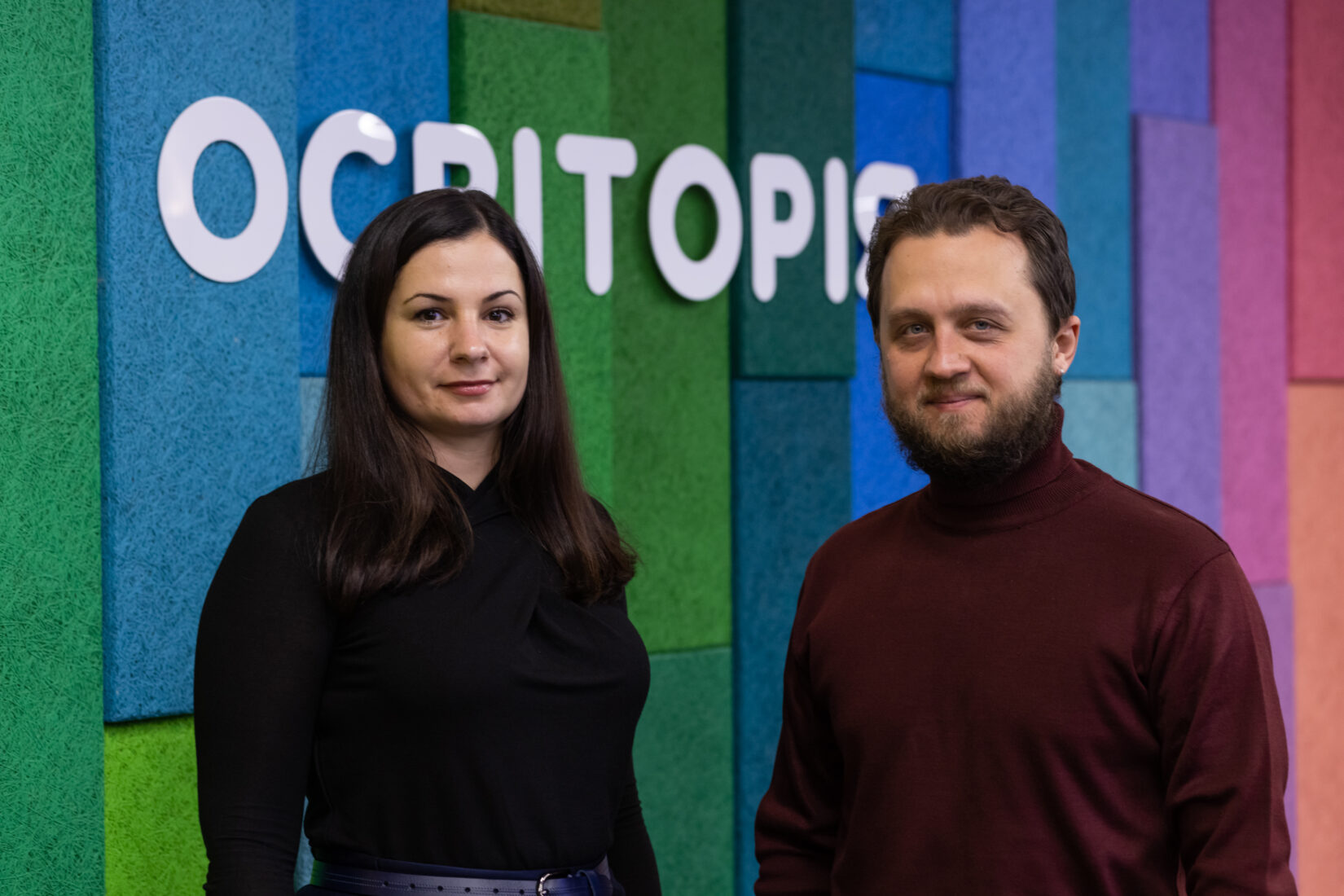Hello Oksana and Anton! It’s been seven years for you Oksana, and ten years for you Anton since you studied in Sweden. What do you find most memorable from your time here?
Anton – “The programme in Sweden allowed me to update my knowledge. I found the Swedish university system to be quite different to the one in my country: It enables students not just to absorb tons of information, but to process it intellectually through producing analytical products. Also, the cooperation and teamwork approaches in Sweden were central to almost every course I took, and it improved my communication and collaborative skills a lot.”
Oksana – “I had a shorter study experience than Anton at the Swedish Institute Academy for Young Professionals, or SAYP, at Linkoping University. But I liked the format of the programme. It had a good combination of academic material, mixed with lectures from practitioners and study visits to the local council and library to see how they managed digital tools – as well as a study visit to Stockholm. They gave a lot of good examples of digital solutions, but what surprised me the most was the lack of interest in Sweden in some of the most important e-democracy tools in Ukraine – simply because in Sweden there was a high level of trust in public officials and a low level of corruption! That’s very different from Ukraine, where digital tools are supposed not just to simplify extensive bureaucratic procedures, but also eliminate corruption.”
Tell us about your new UNDP digitalisation project.
Oksana – “the DIA Support project, funded by Sweden and implemented by the UNDP in Ukraine, was launched in 2021. The project’s mission is to bridge the digital groups, ensuring that everyone in Ukraine can access new digital services. During its first phase, the project launched 40 digital services for various vulnerable groups such as internally displaced persons, single parents, people with low income, older people, and so on. Another important aim of the project is to increase the level of digital literacy of the population through thematic educational interventions, and together with the Ministry of Digital Transformation of Ukraine, to support Digital Literacy Hubs at libraries.”
Anton – “The Russian full-scale invasion happened in the middle of our project, so we had to adapt both the project and ourselves to the new realities. We managed to do this by switching to the new priorities of the government – supporting the creation of urgently needed e-services and digital tools. For example, we created a series of services for IDPs, and over 12 million Ukrainians have been able to use them efficiently, no matter where they are living.
“From 1 January 2024 we launched the second phase of the project, focusing on the digitalisation of public services. The project is supported by the government of Sweden, so of course its composition and principles of implementation reflect Sweden’s basic values of inclusivity, to achieve a barrier-free digital environment and leaving no one behind.”
And Oksana: What about the women leadership programme you’re heading?
Oksana – “We’re currently setting up a leadership programme for women involved in the digitalisation of the public sector. It’s aimed at women leaders who already have experience in the digital transformation of the public sector and managing teams, and who are motivated for further career development in this sphere. The programme starts in April, and 20 selected winners will first study four educational modules online, and then go on a final study tour to Stockholm, where they’ll have a chance to immerse themselves in the field of state digital transformation through a combination of applied industry knowledge, study visits, and recommendations from Swedish experts.”
What are your hopes for your cooperation with Sweden in this UNDP project?
Anton – “I’m aware of the fact that Sweden has a huge amount of experience in this area, and a wide network of contacts. Besides getting continuous support for our current project, I hope that we’ll be able to bring Ukrainian women leaders to Sweden for knowledge exchange and to establish good formal and informal contacts for the future!”
